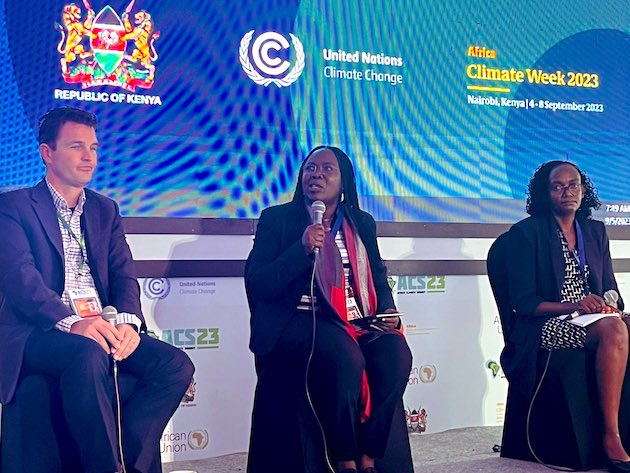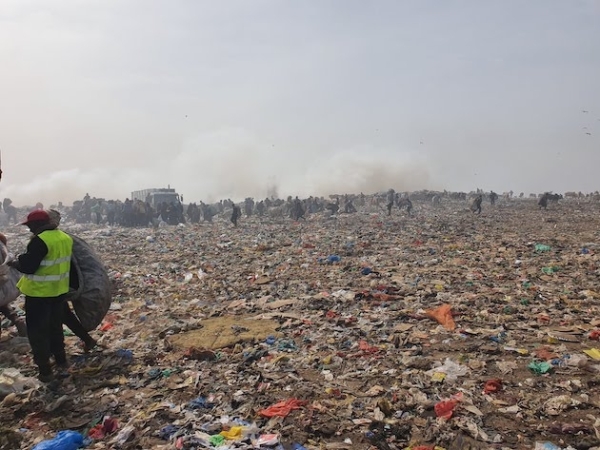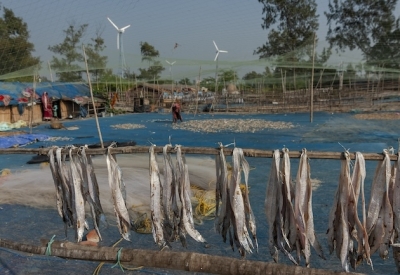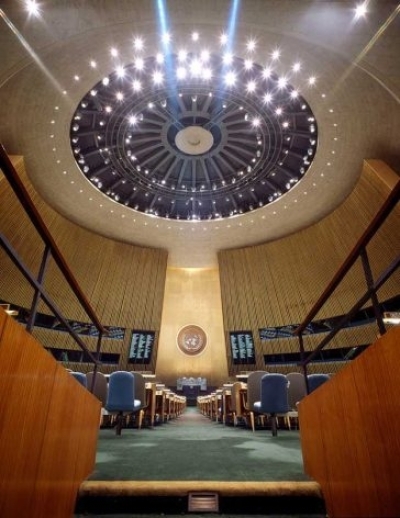NAIROBI, Oct 02 (IPS) — With the African continent recycling less than 11 percent of its waste, COP28 provided leaders on the African continent to consider integrated waste systems that include informal waste workers.
Akinyi Walender, Africa Director at Practical Action, an innovative international development group, says the informal waste workers are rarely involved. She was speaking recently at the inaugural Africa Climate Summit.
“For us to tackle the issue of waste, we really have to look at how we can have a more integrated system in place, which means we need to bring everybody along,” she told a session on open burning of waste on the sideline of the summit.
Coming ahead of the upcoming Cop28 summit, Wandeler says it provided an opportunity for the African continent to think concretely about what it wants to achieve on climate issues.
“The situation on climate is so dire that we do need to really act. We should already begin to look at opportunities within the continent and make those good while we wait for the funding that is supposed to come on adaptation,” Walender told IPS in an interview.
Over 90 percent of waste generated in Africa is disposed of at uncontrolled dumpsites and landfills, often with associated open burning. Nineteen of the world’s 50 biggest dumpsites are located in Africa, all in Sub-Saharan Africa.
The African Union set an ambitious target for African cities to recycle at least half of their waste by 2023, but many are still far from achieving this.
According to the UN Environment Programme, the goal can be met and even surpassed with a shift of organic waste to composting and bioenergy recovery, along with the refurbishment, repair, reuse, and recycling of the waste.
In 2016, Sub-Saharan Africa alone generated around nine percent of global waste or 180 million tonnes, of which about two-thirds is dropped in landfills and open dump sites, left to pollute the nearby environment and global climate. This is projected to quadruple by 2050.
Last year, environment ministers from 54 African countries met in Dakar, Senegal, at the 18th session of the African Ministerial Conference on the Environment (AMCEN), committing to achieve a 60 percent reduction of open waste burning by 2030 and fully phase out open burning of waste by 2040.
It is an ambitious target, which Walender says, “With the much wider UN 2030 Agenda on the Sustainable Development Goals (SDGs) in place, many countries have so much that they need to grapple with”.

“We have many policies in place, but most are hardly implemented. The whole topic on open burning of waste and its 2040 timeline is very short. Many have yet to even put in place those policies that govern the open burning of waste. I feel that this timeline is actually very short,” Walender told IPS in an interview.
Sam Dindi, director for training and community mobilization at Mazingira Yetu, a Kenyan-based environment organization, says if countries embrace a green and circular economy in which waste is reused, it has the potential to create job opportunities for the youth.
“Open burning of waste is a quick way of addressing a problem, but again, it brings an even bigger problem that we may not be able to solve both as a country and as a continent,” he told IPS in an interview.
Last year, Kenya passed the Solid Waste Management Act 2022, dubbed Sustainable Solid Waste Management Act 2022, which requires the closure of all open dumpsites and transit to landfills, a controlled form of dumpsite.
“Kenya is making progress. Last year, Kenya passed the Solid Waste Management Act 2022, which transforms how we manage waste from the previous linear economy and promotes a circular economy in which waste is given a new lease of life. It is either upcycled or recycled,” says Dindi.
According to Dindi, the implementation of the policies in place remains a barrier to the efforts of various stakeholders.
“Implementation of the policies is where the rubber meets the road. This is where we lack the political goodwill because perhaps implementing these policies is perceived to affect some businesses, policymakers, or other interested parties,” Dindi told IPS.
Dumping of waste, according to stakeholders who spoke at the session, agreed that the open burning of waste heavily impacts the impoverished and marginalized communities.
A 2021 report by Practical Action dubbed Managing Our Waste indicates that nearly two billion people on the planet live without any form of waste collection, with Sub-Saharan Africa experiencing some of the lowest waste collection coverage.
The report recommends monitoring waste management as a people-centred service, integrating the voice of those most affected and improving informal waste workers’ lives and working conditions.
“At all levels, waste policies need to focus not only on environmental benefits but also on improving the lives of the poorest communities and workers. Their voices need to be heard in all key decision-making processes,” reads the report.
In Senegal, Practical Action is working with local communities and government agencies to reduce the open burning of waste at two major dumping sites, namely, the infamous Mbeubeus site in Dakar and a second one in Thiès.
“While it is generally seen as a responsibility of the local government, the community and the private sector need to be involved. If you look at the whole circular economy, there is the ability to reuse, recycle the waste, and reorient it in terms of packaging,” Walender told IPS.
IPS UN Bureau Report






